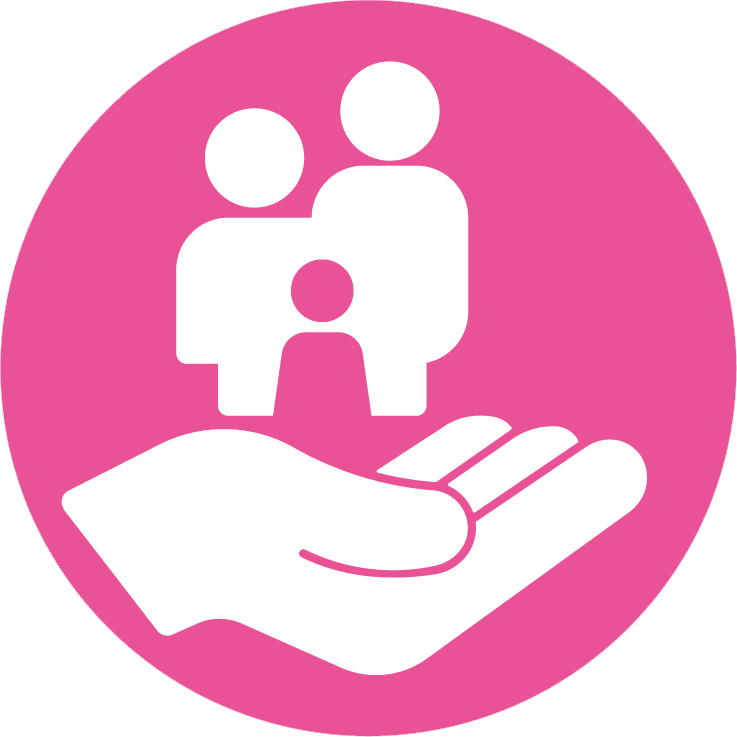Issues
A non-exhaustive list of issues raised during the development of SNAP 2 includes:
- The right to private and family life includes many different elements and it is not as well understood as it should be. As a result, some people disproportionately experience infringements of this right. People whose rights are most at risk should be identified and prioritised by delivery stakeholders on an action-by-action basis.
- Disabled people, including people with learning disabilities and autistic people, experience disproportionate barriers to exercising control over their life choices and relationships, including as parents and to have healthy relationships, including sexual relationships. Action is needed to improve rights-based policy and practice.
- Infringements of the right to private and family life of the children and families of accused persons and prisoners occur at many points in the criminal justice process. Coordinated action is needed to ensure all stakeholders understand the right and apply a rights-based approach.
- Unpaid carers and young unpaid carers experience a wide range of issues in relation to their human rights that cut across many different areas of public policy-making and service provision. This includes – but is not limited to – the right to an adequate standard of living, to rest, leisure and to a reasonable limit of unpaid caring hours, work, education, private and family life, good physical and mental health, and the right to choose to be an unpaid carer. There is a gap in data and analysis to understand the experiences of unpaid carers through a rights-based lens, so that comprehensive, coordinated and targeted improvements can be made to policy and practice.
- There is a lack of awareness and understanding about the right to personal autonomy, and as a result of this gap some people have very poor experiences in their everyday lives. Action is needed to gather disaggregated equality and human rights evidence and examples of best practice across a wide range of policy and practice areas and carry out a human rights analysis, in order to inform and help implement rights-based policy and practice.
- Bodily integrity is an important element of the right to personal autonomy, but it is not well understood as a human right and some people experience ongoing problems with physical restraint and overmedication in a range of settings. While there is guidance being developed on restraint in school settings, there is a gap to develop, implement, and independently regulate rights-based guidance in relation to physical and pharmacological intervention in non-school settings.
- There are concerns that some use of investigatory powers, including communications surveillance, may be infringing people’s human rights. A robust review is needed to identify human rights gaps in the current regulatory and scrutiny framework and make improvements where needed.
Actions
- Carry out a human rights review to identify how disabled people, including people with learning disabilities and autistic people, have their right to private and family life respected, protected and fulfilled. Use the findings and recommendations to develop a rights-based approach and better realise people’s right to private and family life, in particular their rights as parents and to form safe, healthy relationships, including sexual relationships.
- Carry out a human rights review of current national strategies and delivery programmes in Scotland in order to better understand, respect, protect and fulfil the rights of unpaid carers and young unpaid carers. Particular focus on unpaid carer’s rights to an adequate standard of living, to rest and leisure (including a reasonable limitation of working hours), employment, private and family life, good physical and mental health, and the right to choose to be an unpaid carer. Use the findings and recommendations to inform, improve and support the implementation of rights-based policy and practice across Scotland.
- Carry out a human rights review to better understand and raise awareness of the right to personal autonomy in Scotland. The review will gather evidence (including people’s experiences and best practice examples), identify gaps, and propose changes that are needed to improve the realisation of this right. Particular focus on the experiences of those whose right to personal autonomy is most at risk. Use the findings and recommendations to inform, improve and support the implementation of rights-based policy and practice across Scotland.
- Explore how best to promote and uphold the right to private and family life of the children and families of accused persons and prisoners at each stage of the criminal justice system.
- In order to better realise people’s right to bodily integrity, develop rights-based guidance on physical and chemical restraint in all settings and ensure its consistent application.
- Carry out a human rights review of the legislative and policy framework in respect of investigatory powers in Scotland. The review should identify any areas of best practice as well as areas for development. Use the findings and recommendations to inform, improve and implement rights-based practice across Scotland.
End of page.
